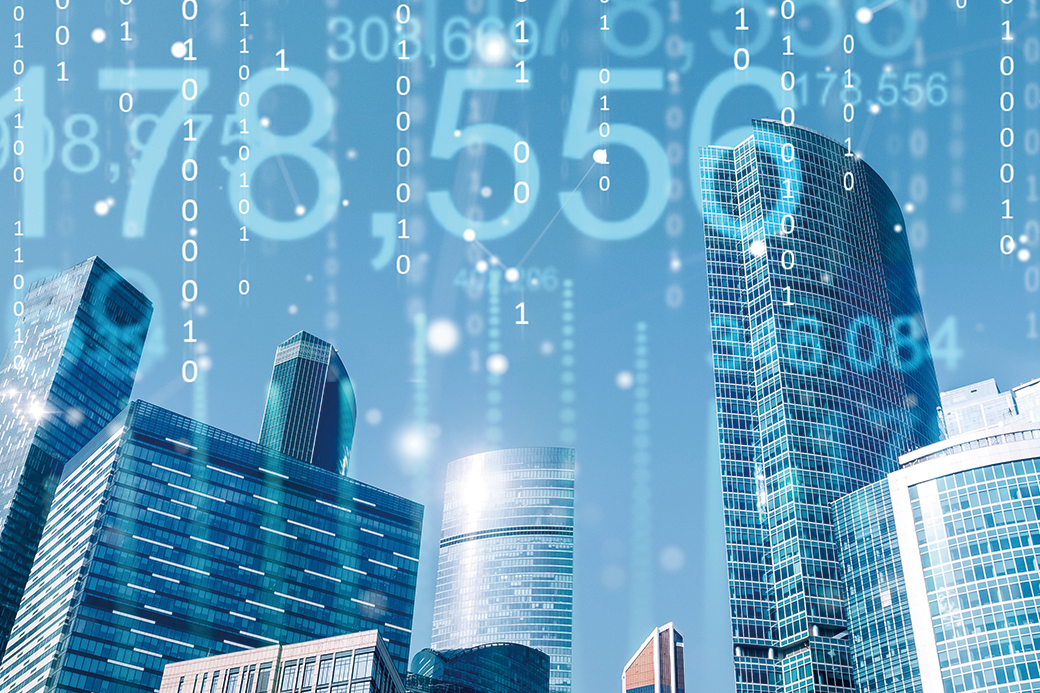
- People ①
- The Key Asset for Future Competitiveness,
“Data”, Significance of Ethical Use and
Transparent Management
본문영역
The Key Asset for Future Competitiveness,
“Data”, Significance of Ethical Use and Transparent Management
Professor Saiah Lee’s
Story on the Data Economy
DNA (Data Network AI) and other intelligent information technologies are the foundation of the fourth industrial revolution, known as the intelligence revolution. It aims to increase productivity through analysis and prediction. According to the Ministry of Science and ICT, in 2021, the number of open public data instances rose by 63.4% year over year to 55,561 amid the remarkable rise in the DNA area, as different technologies converged to provide innovation to established industries. Data has emerged as a vital economic resource in the age of AI transformation. Therefore, we asked Professor Saiah Lee of the Department of Management Science, who introduced himself as having studied economics in college, about the potential and significance of the data economy.
- Written by _ the Editorial Office Photo _ Yoo Geun-jong

Advances in AI and Machine Learning, Making Decisions Possible with Data
Recently, major local governments have been actively attracting data centers. Thus, it is believed that the flood of associated businesses brought in by the data centers will result in job creation and economic development in the area.
This means that “companies secure competitiveness and achieve growth by converting data into economic value,” according to the economic model’s guiding concept. Thus, it makes sense to discuss the “data economy” when discussing “AI transformation.” Massive data processing is not practically impossible, but it is too costly and time-consuming for humans. However, Professor Lee clarified that AI develops its intelligence by learning information just like humans, enabling AI to emulate human perception, reasoning, and learning skills.
"Data includes information about market shifts, consumer behavior, technology trends, and other topics. Data analysis and forecasting have been significantly enhanced by advances in AI and machine learning, and companies are using data to inform strategic choices to obtain a competitive edge. Companies may swiftly and precisely extract valuable insights from their data, which aids in decision-making.

AI’s Data Analysis Boosts Industry and Corporate Competitiveness
“Macroeconomic and monetary economics,” “international economics,” “applied time series econometrics,” and “machine learning,” a sub-branch of AI, are among Professor Lee’s areas of interest. Among these, machine learning helps with the best possible decision-making by identifying patterns in data, learning from them, and making predictions based on those patterns.
After all, in the data economy, knowing how to analyze and use data is more crucial than simply obtaining it. For this reason, Professor Lee believes that “the process of acquiring high-quality data, meaningfully analyzing it, and applying it depends on a company’s competitiveness.”
“I believe that a number of industries will see significant changes in the future. Future competitiveness will be enhanced due to the data economy’s acceleration of innovation across industries. Specifically, AI and data analytics will help lower expenses, boost operational effectiveness, and give customers more individualized experiences. Companies will have to adapt if that occurs.”
Professor Lee claims that the manufacturing industry will be able to use “facility data” to forecast the likelihood of equipment failure, and determine when maintenance is necessary if the data economy is implemented.
Furthermore, real-time data increases efficiency by automatically adjusting labor speed and product quality inspection, and AI-analyzed sensor data will allow for “optimization of production processes” and "realization of autonomous factories (smart factories).”
Efficiency gains in risk management and data analysis are also possible in the financial sector. To stop different types of fraud, it examines “transaction data” and looks for abnormal patterns. Needless to mention, it can evaluate the financial situation and spending habits of clients to suggest goods that are specifically designed for them, or improve loan conditions to offer more individualized services.
In the retail sector, data is equally useful. Customer satisfaction can be raised, and consumer trends and seasonal swings can be predicted with the use of data from inventory management, personalized marketing, and customer purchase history analysis. This is the outcome of cost reduction and inventory optimization, which helps avoid shortages and surpluses.
AI and data analytics are useful in cutting expenses and boosting productivity in a variety of sectors. They are also significant in offering clients individualized experiences. Therefore, it is anticipated that the data economy would be crucial in boosting industrial innovation, and bolstering competitiveness in the future.


Support from policies facilitates data sharing,
which results in value creation and new
business models. To guarantee that data is
used in a more reliable manner, we will also need
to improve data protection technology and
create security regulations.
Digital Transformation with Ethical Use of Data
Professor Lee predicted that the data economy would not only increase Korea’s competitiveness, but also bring about real changes in our lives. To achieve this, though, the pertinent legal system that promotes collaboration and exchange between data usage and personal information protection must be improved.
To make data and AI more cost-effective and efficient, digital infrastructure—such as data centers, cloud infrastructure, and 5G and 6G networks—is also essential. To find personnel capable of handling cutting-edge data analysis and AI technologies, it is imperative to develop vocational training programs and fortify industry-academia collaboration programs.
“Data sharing is facilitated by policy support, which results in the development of new business models and value generation. To guarantee that data is used in a more reliable manner, we will also need to create security regulations and improve data protection technology. Small and medium-sized enterprises, as well as non-IT firms, should be encouraged to join the data economy.”
The data economy offers innovative opportunities. Undoubtedly, there are issues that cannot be disregarded, like data bias, the escalation of social inequity, and invasions of personal privacy. There is little question, though, that data that has already demonstrated the ability to provide individualized services in healthcare and education has the potential to boost economic growth and industry-wide efficiencies. Although the issue of bias is often raised, there are more positive aspects, such as promoting the public interest by serving as a resource for establishing environmental management and welfare policies in many areas, including transportation, energy, and public safety.
Professor Lee stated, “In the end, ethical data use principles and transparent data management are necessary to maximize positive contributions, while minimizing the negative impacts of the data economy.” We think that the data economy will bring about “digital transformation” and a more equitable and prosperous way of living when privacy and fairness are given priority on top of these values.
Data Economy
An economic system that views data as a resource and generates added value is known as the “data economy.” Data is important in the current digital era, just as coal and oil were important resources that drove the economy in the past. Data is now viewed as an asset rather than merely information, and businesses generate additional value in many ways, including introducing specialized services, effective operational plans, and new product development.
The emergence of data-driven business models is one of the characteristics of the data economy. To put it another way, data is analyzed by online advertising and personalized recommendation systems that forecast customer preferences and behavior and generate revenue. Data has already turned into a marketable commodity, and datasets are being purchased and sold in the data market, generating commercial value. Innovations like smart cities, digital healthcare, and driverless cars are made possible in this data economy system by the confluence of digital technologies like AI, cloud computing, and the Internet of Things (IoT).

